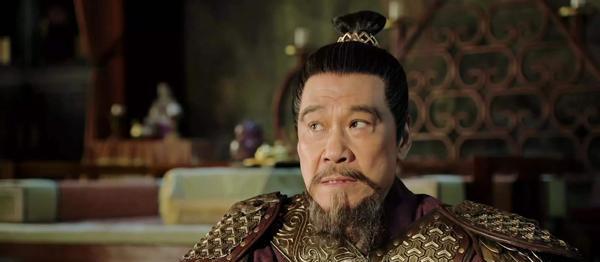In 1402, Zhu Di, the King of Yan, led an army south to March to Nanjing in the Ming Dynasty. After a bloody battle along the way, Zhu Di finally crossed the Yangtze River on the third day of June of that year, and after capturing Zhenjiang, led his army to garrison Longtan near Nanjing. Zhu Di did not immediately attack the city, because the city of Nanjing was high and deep, easy to defend and difficult to attack, and there were still 200,000 defenders in the city!
Just a few years ago, Zhu Di suffered a big loss in the siege battle. It was at the Battle of Jinan, when Tie Xuan led the remnants of the army to hold the city, severely damaged the Yan army, and broke the myth of Zhu Di's invincibility. The siege did not have enough troops, and the risk of attacking the city was too great, so Zhu Di did not take further military action after arriving outside Nanjing.

However, the final result was that the city of Nanjing fell without a fight, and Emperor Jianwen actually disappeared from history without organizing an army to defend the city. It turned out that after the Yan army arrived in Nanjing, the ministers under Emperor Jianwen were talking about it, and there was no consensus that some people advocated leaving Nanjing for Zhejiang, and some people advocated going to Hubei and Hunan.
At this time, Fang Xiaoru proposed: "There are still 200,000 victorious soldiers in the city, the city is high and deep, the grain is sufficient, and it is enough to evacuate the people's houses outside the city and drive the people into the city." Objectively speaking, what Fang Xiaoru said has a certain truth, sticking to Nanjing, waiting for the soldiers of the Qin King, and then the inside should be combined with the outside, and there is still the power of a war. After all, at that time, the imperial court still had two heavy troops in its hands, and they were not far from Nanjing, one was led by Ma Meiyin, garrisoning Huai'an, and the other army was stationed in Fengyang.
In order to delay time, Emperor Jianwen also adopted the strategy of delaying the army, successively sending his own cousin Qingcheng County, then the chancellor Li Jinglong and others, followed by The Prince of An, the Uncle of the King of Gu, and finally his own mother, who let them go to Zhu Di's camp to negotiate peace. However, With Nanjing just around the corner, how could Zhu Di agree to give up the throne that was about to arrive?
After the failure of the peace negotiations, Emperor Jianwen began to appoint imperial court officials to defend the gates of Nanjing. Nanjing City is the capital city built by Zhu Yuanzhang for more than 20 years, with a grand scale, consisting of four walls of palace city, imperial city, capital city and waiguo. Among them, there are 16 gates in Outer Guo, with a circumference of 120 miles, thirteen gates in the inner city, plus 200,000 defenders, this defense system is absolutely easy to defend and difficult to attack.
However, the fortified defense of Nanjing City and the 200,000 troops failed to keep the throne of Emperor Jianwen, and Zhu Dibing entered the city of Nanjing without bloodshed and seized the throne. It turned out that the people who were most trusted and close to Emperor Jianwen had betrayed him! One is Li Jinglong, and the other is Zhu Xi, the King of Gu. Li Jinglong was the son of Li Wenzhong and was considered to be the cousin of Emperor Jianwen.
Zhu Xuan was the nineteenth son of Zhu Yuanzhang, and was still the uncle of Emperor Jianwen according to his generation. Li Jinglong had been ordered to attack Zhu Di, but as a result, he was repeatedly defeated and lost, and his courtiers suggested that Li Jinglong be killed, but Emperor Jianwen did not pursue responsibility, but still trusted him. Zhu Qi, the King of Gu, did not support Zhu Di when the Battle of Jingnan broke out, but came to Nanjing to show his loyalty to his nephew.
However, as the battle situation changed, the minds of the two also changed. After Zhu Di arrived in Nanjing, Emperor Jianwen sent Li Jinglong and Zhu Xi to Zhu Di's army to negotiate peace, and around that time, there was collusion between the two sides. After that, the two were ordered to guard the Jinchuan Gate, and on June 13, they opened the gates of Nanjing to welcome Zhu Di's army into the city. After the Yan army entered the city, the 200,000 Ming army suddenly lost its fighting spirit and almost no resistance, which is known in history as the "Change of Jinchuan Gate".
At this moment, a man stepped forward, and he led a small number of family members to fight against Zhu Di's army, and this person was Xu Huizu, the Duke of Wei, who was Also Zhu Di's brother-in-law. However, Xu Huizu's resistance was also to no avail, and he probably only dragged out some time for Emperor Jianwen. At this time, a fire broke out in the palace, and Zhu Di quickly entered the palace. In front of a corpse that had been burned beyond recognition, Zhu Di dropped a few drops of "crocodile tears" and said, "Boy, why bother!" ”
References: 1. "Fengtian Jing Difficult Record"; 2. "The End of the Ming History Chronicle"; 3. "Ming History"